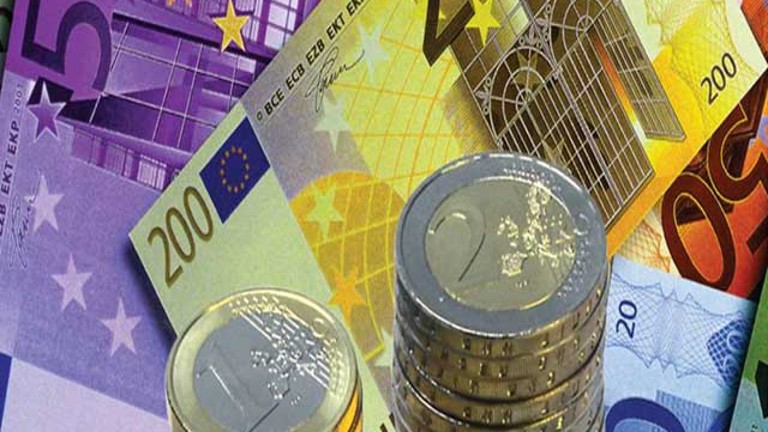Dollar gains on Syria chemical weapons report

Euro currency
NEW YORK - A US statement that Syrian forces may have used chemical weapons on rebels sent the dollar higher, erasing early gains by the euro.
The pound jumped on news that the British economy pulled back into growth in the first quarter of 2013, avoiding falling into recession for the third time since the 2008 global financial crisis.
At 2100 GMT, the euro was trading at $1.3009, compared to $1.3014 late Wednesday, after having neared the $1.31 line before US officials said for the first time that they had evidence the Syrian regime had used chemical weapons.
The officials stressed there was still not full agreement on the issue in the US intelligence community, but Defense Secretary Chuck Hagel warned that using such weapons "violates every convention of warfare."
The report raised fears that Washington could intervene more deeply in the Syrian conflict, after having warned earlier that using such weapons would cross a "red line" in President Bashar al-Assad's fight with rebels.
A senior White House official said "all options are on the table," a euphemism for military options being taken into consideration, should the weapons use be confirmed. But a US defense official stressed that a military intervention was not imminent.
The pound pushed to $1.5430 from $1.5264 on the strength of the first quarter growth report.
"Today's figures are an encouraging sign the economy is healing," said finance minister George Osborne. "Despite a tough economic backdrop, we are making progress."
The yen edged higher, with the dollar dropping to 99.29 yen from 99.53 Wednesday, while the euro slipped to 129.16 yen from 129.53.
Eyes were on Friday's policy decision by the Bank of Japan on whether to add to the huge stimulus measures unveiled earlier this month as part of a drive to kickstart the economy.
The dollar, meanwhile, slipped to 0.9448 Swiss francs from 0.9467 francs.
What the stars mean:
★ Poor ★ ★ Promising ★★★ Good ★★★★ Very good ★★★★★ Exceptional
Latest News
More News
- Cashless payments hit 28 times GDP in 2025 (February 04, 2026 | 18:09)
- SSIAM and DBJ launch Japan Vietnam Capital Fund (February 04, 2026 | 15:57)
- Banks target stronger profits, credit growth in 2026 (February 04, 2026 | 15:43)
- Vietnam on path to investment-grade rating (February 03, 2026 | 13:07)
- Consumer finance sector posts sharp profit growth (February 03, 2026 | 13:05)
- Insurance market building the next chapter of protection (February 02, 2026 | 11:16)
- NAB Innovation Centre underscores Vietnam’s appeal for tech investment (January 30, 2026 | 11:16)
- Vietnam strengthens public debt management with World Bank and IMF (January 30, 2026 | 11:00)
- Corporate bond market poised for stronger growth cycle (January 28, 2026 | 17:13)
- Vietnam's IPO market on recovery trajectory (January 28, 2026 | 17:04)
















 Mobile Version
Mobile Version